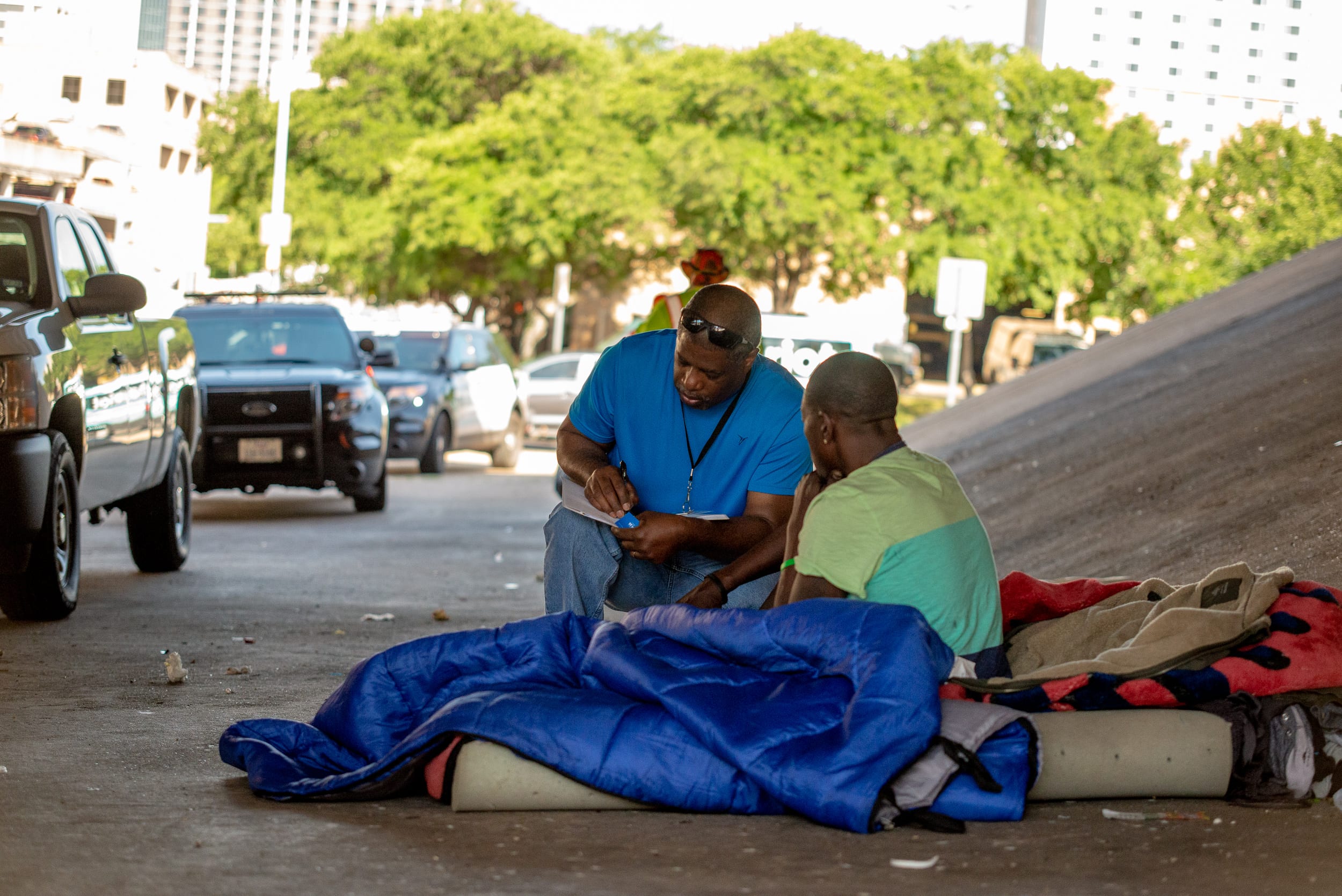Fiercely Focused: Integral Care
AUSTIN, Texas (May 28, 2021) — Every unhoused person’s specific needs are different, but Ruth Ahearn knows one fact remains constant for everyone experiencing homelessness in our community: “It’s really difficult to manage complex health issues when you’re living on the street.”
Ahearn is Integral Care‘s Practice Administrator of Housing and Healthcare for the Homeless Initiatives, and she believes strongly that housing is a healthcare intervention. That’s why in addition to outreach and engagement teams that provide medical care and mental and behavioral health supports to people experiencing homelessness, Integral Care connects people with permanent housing as often as possible.
May is Mental Health Month, and ECHO is highlighting Integral Care for being Fiercely Focused on ending homelessness.
The most recent ECHO data estimating the unhoused population on a single day found 69% of people experiencing homelessness and seeking services are living with a physical or mental disability. More than 70% of people report their current episode of homelessness was caused by trauma or abuse.
“On top of all that, they’re living on the streets. They’re experiencing an increased risk of violence, they are marginalized, they’re discriminated against. And so, really on a daily basis they are being retraumatized,” Ahearn said. “When your body is in that constant state of fight or flight or freeze, you never have an opportunity really to rest.”
The Mobile Medical and Mental Health (M3) Team – a collaboration between Integral Care, Dell Medical School, and CommUnityCare – is one of the groups that provides care to unhoused people wherever they are while also helping connect people to housing.
“We’re able to not only meet people where they’re at, we’re able to meet people multiple times throughout the week, so it’s this frequent and consistent engagement that I think really sets us apart,” said Tony Nunez, Integral Care’s Rehabilitation Specialist on the M3 Team. “All of it kind of just boils down to, ‘How are you today, and how can we serve you?'”
Nunez continues to follow up with people even after they’ve been connected to housing. It’s that ongoing support that helps people remain stably housed as they continue to work through the trauma of living unhoused.
In 2019, to combat the lack of housing that exists in Austin for people exiting homelessness, Integral Care opened Terrace at Oak Springs, a Permanent Supportive Housing (PSH) development in east Austin that provides housing for 50 people, half of them veterans. In addition to individual apartments, people living at TAOS have access to an on-site clinic, laundry services, a food pantry, community gathering spaces, employment programs, and other supports.
“We’re here where they live, so that’s a great thing,” said Terekia Veal-McIntosh, a Rehabilitation Specialist at TAOS. “It’s amazing, like, seeing someone come in from being on the streets and being in survival mode to actually kind of letting their guards down and building trust and relationships.”
And housing is not just a better option for people experiencing homelessness. Integral Care studied the considerable reductions in hospital bed days, EMS encounters, emergency room visits, and arrests for the first 50 people to move in and found a cost savings to the public of more than $336,000 over the course of the first six months. “If you’re getting connected to primary care, you’re not utilizing the emergency room quite as frequently as the main source of your healthcare,” Ahearn explained.
“Housing people is a great idea.”
Watch the video above to see how Integral Care is Fiercely Focused on ending homelessness.


